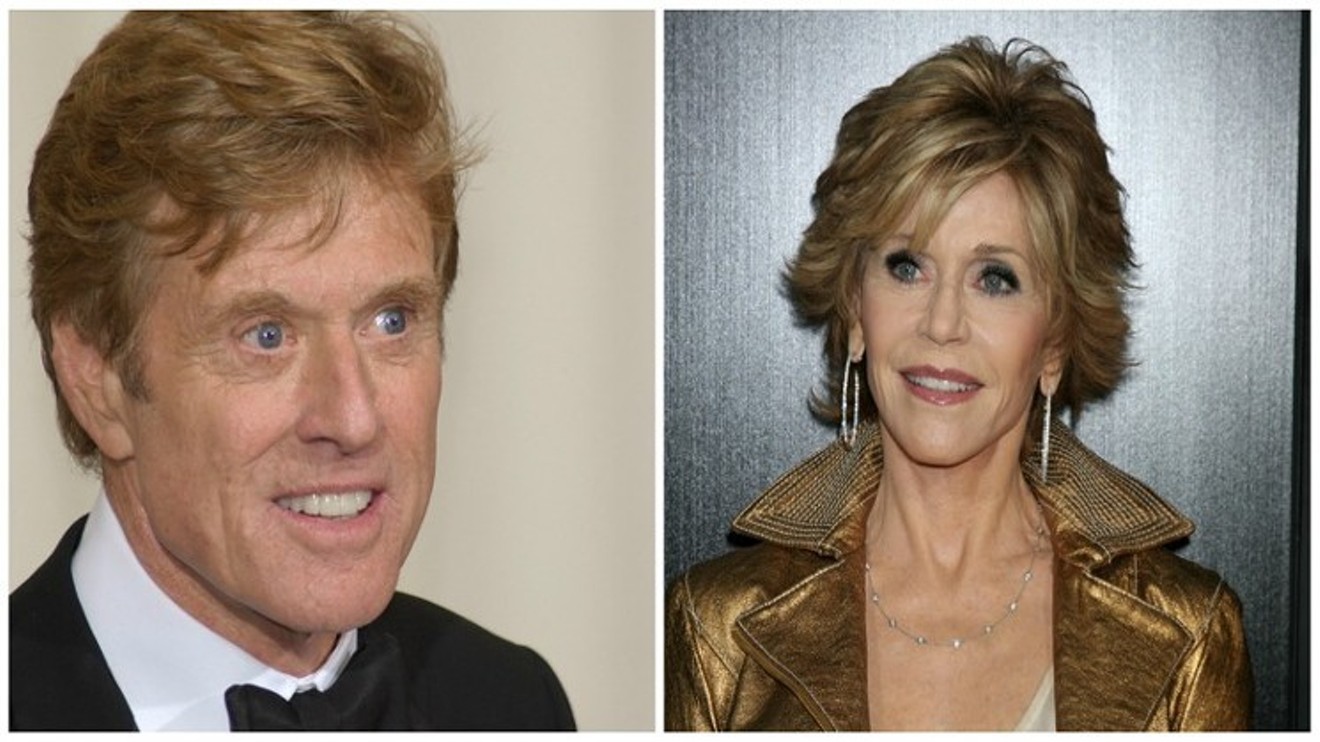"Robert Redford went to CU," Zuckerman points out, "and he had a good experience on Our Souls at Night. About a year ago, maybe less, we got a call from his executive producer saying he was perhaps interested in making the next picture he directs here. It was supposed to start this winter, and they wanted us to tell them what we could do with incentives. But after we said we couldn't give them anything, we never heard from them again."
Zuckerman has become accustomed to such conversations. When the commission's budget was cut to $750,000 last year, he told us that this funding level meant the agency would have to concentrate on local productions and assorted educational outreach efforts. With other states — notably New Mexico and Georgia — becoming major destinations for Hollywood films thanks to incentives that are much more aggressive than Colorado's, he had been hoping legislators would bump up the fund to at least $2 million in 2018. "That's how much we were in the governor's budget for," he points out.
But uncomfortable headlines that followed a report from the state auditor made this a much longer shot, and the general assembly's joint budget committee subsequently recommended that the total stay at $750,000.
Here's how Zuckerman explains the auditor's findings: "We had a couple of projects — Furious 7 and a number of things the Discovery Channel was doing here — that wouldn't sign the state contract. Lawyers at both companies saw something in there that made them fear they were risking their copyright should things go awry — and since Fast and Furious has a copyright that's arguably worth billions of dollars, they weren't going to potentially endanger that to get a $700,000 incentive. As a result, they started work before the contract was signed, and under state fiscal rules, they're not supposed to be able to collect funds" under those circumstances.
In order to address this issue, Zuckerman continues, "we met with Bob Jaros, the state controller, and we agreed on how to change the contract so the state gets what it wants but we don't have the issue where a big company isn't willing to sign the contract because there's language in it that's potentially painful. So that was fixed years ago, but it was in the auditor's report."
In Zuckerman's view, the joint budget committee isn't trying to punish the film commission for its previous transgressions. Rather, it simply "wants us to take a year with the new rules and guardrails and see how it looks after that."
The revised procedure has been codified in Senate Bill 103, which passed and was sent to Governor John Hickenlooper on March 12. It can be accessed below.
In the meantime, though, plenty of Hollywood business is going elsewhere.

A 2016 film shoot for Hostiles, a movie that was largely shot in New Mexico, which offered a lot more in incentives than Colorado had available.
File photo: qoriankakilcher on Instagram
At least a couple of Hollywood productions came to the state even after the incentives were cut: Director Jason Reitman shot briefly in the Durango area during the past year, and the Christian Bale Western Hostiles visited southern Colorado near Westcliffe for three or four days. But the folks behind the latter had been willing to do a lot more.
"We did a serious dance with them when we had a little money to offer," Zuckerman recalls. "We showed them a zillion locations and had discussions with the director and producer. But they thought we could give them more money, and when we didn't have it, they went to New Mexico."
Despite the latest bad news when it comes to funding incentives, Zuckerman isn't quite yet ready to raise the white flag. His hope that incentives will be restored and perhaps boosted "is the reason I'm sticking around, frankly. I came here to grow an industry in Colorado, and I think Colorado would benefit tremendously from having that industry here. We had a setback with the audit, but I'm hoping next year there's going to be a lot of changes for the better."
Until then, however, Zuckerman doubts that any Hollywood films will do significant location shooting in the state. "It's an incentive business now," he maintains. "That's just the way it is."
Click to read Senate Bill 103.













